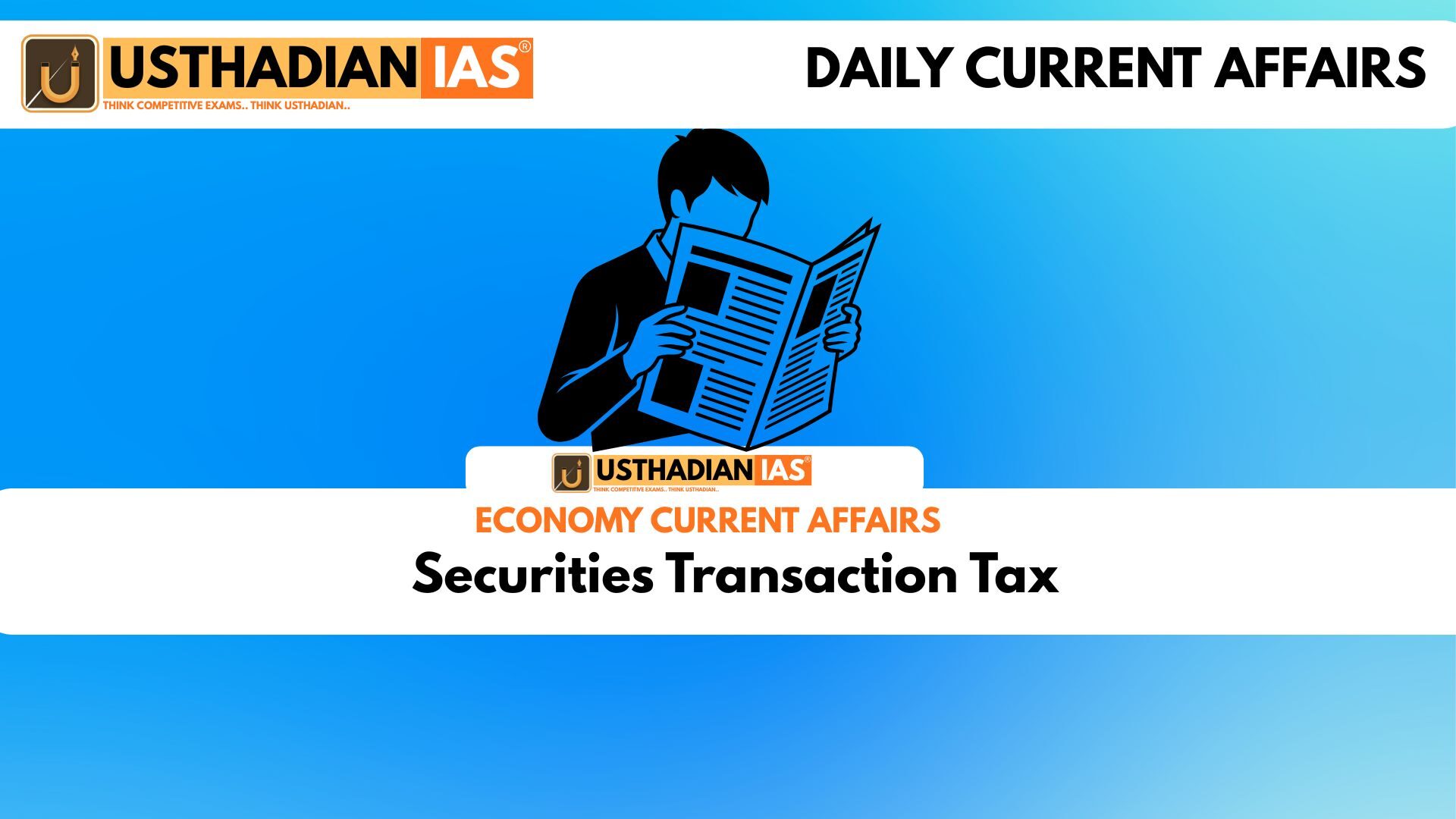Overview
Securities Transaction Tax: The Securities Transaction Tax (STT) is a direct tax imposed on transactions of equity shares, derivatives, and equity-oriented mutual funds carried out through recognized stock exchanges in India. It was introduced by the Finance Act 2004 to strengthen compliance and reduce tax evasion in the securities market.
Static GK fact: India was among the first countries to introduce a tax specifically on securities transactions to enhance market transparency.
STT is levied on both buying and selling of securities. The rate varies depending on the type of security and transaction, ensuring a targeted approach to tax collection.
Constitutional Scrutiny
The Supreme Court of India has recently agreed to examine the constitutional validity of STT. The review will focus on whether STT aligns with the provisions of Articles 265 and 246 of the Constitution, which deal with the levy of taxes and division of taxing powers between the Union and State governments.
Static GK Tip: The Supreme Court is the ultimate authority for determining the constitutionality of tax laws in India.
Legal challenges primarily question whether STT is a direct tax or should be classified differently, impacting its regulatory framework and the scope of government authority.
Purpose and Impact
The primary aim of STT is to curb tax evasion in securities trading. By imposing a tax at the transaction level, the government ensures that all trades are recorded and taxable.
Static GK fact: STT revenue forms a part of the Union government’s non-tax revenue and contributes to fiscal stability.
STT also helps in regulating speculative trading by imposing minimal costs on frequent transactions. Analysts argue that this reduces market volatility and promotes transparent trading practices.
Rates and Coverage
STT rates vary according to transaction type:
- Equity delivery: 0.1% on both buy and sell
- Equity intraday: 0.025% on sell side
- Futures and options: 0.01% on sell side for futures, 0.05% on sell side for options contracts
Static GK fact: The introduction of STT in 2004 coincided with reforms in capital markets to strengthen investor confidence and market integrity.
The tax applies to all trades executed on recognized stock exchanges, including NSE and BSE, ensuring comprehensive coverage.
Regulatory Significance
STT acts as both a fiscal tool and a market regulation mechanism. It promotes formalization of securities transactions and discourages under-the-table trades.
Static GK Tip: Securities Transaction Tax is a model often studied by emerging economies for integrating tax compliance in financial markets.
By ensuring all trades are taxed, the government can maintain a transparent record of market activity, which aids in policy formulation and monitoring of market trends.
Static Usthadian Current Affairs Table
Securities Transaction Tax:
| Topic | Detail |
| Tax Name | Securities Transaction Tax (STT) |
| Introduction | Finance Act 2004 |
| Purpose | Curb tax evasion, formalize securities market |
| Tax Type | Direct tax |
| Transactions Covered | Equity shares, derivatives, equity-oriented mutual funds |
| Levy Mechanism | Applied on transactions through recognized stock exchanges |
| Recent Development | Supreme Court to examine constitutional validity |
| Key Exchanges | NSE, BSE |
| Rates | Equity delivery: 0.1%, Intraday: 0.025%, Futures: 0.01%, Options: 0.05% |
| Fiscal Role | Contributes to non-tax revenue and market transparency |








